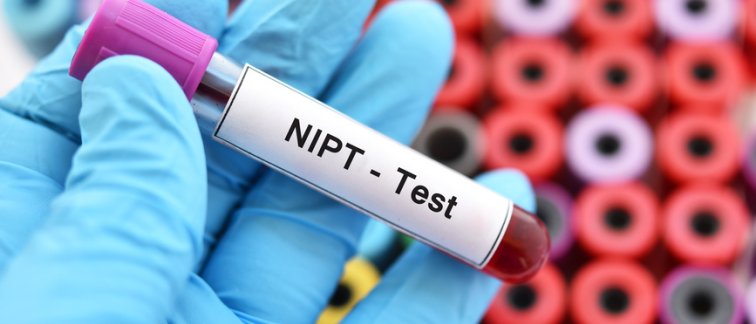The NIPT, a blood test for chromosal abnormalities in the fetus, can show whether pregnant women are infected with the virus. In the future, women may then be able to receive antiviral drugs to protect the fetus, Radboudumc researchers write this week in eBioMedicine .
Prof. Dr. E. Sistermans and Dr. J. Linthorst, both affiliated with the Department of Human Genetics and the Amsterdam Reproduction and Development Research Institute at Amsterdam UMC, are final authors of this article.
Antiviral drug
Almost everyone gets infected with CMV at some point, often without much notice. At most, healthy people feel a little fluish when they get it. For a fetus in the first three months of pregnancy, the virus is more dangerous. In pregnant women with an active infection in the first trimester, about 35 percent of fetuses become infected. In the Netherlands, about 1,000 children a year are born with an infection, 180 of them with permanent consequences, such as hearing impairment or developmental delay. A small proportion of infected fetuses die before birth.
Because there was no treatment until recently, pregnant women are not routinely offered a CMV test. "But now there are foreign studies showing that if you treat the mother early in pregnancy with an antiviral drug, you can largely prevent it from passing from mother to child," says researcher Brigitte Faas.
That the virus can now be kept away from the fetus prompted the Radboudumc, together with Amsterdam UMC and ErasmusMC, to see if it could be detected with a NIPT. The researchers were able to use nationwide data from 200,000 tests. In less than 1 percent of the samples, they found cytomegalovirus. Using a pcr test - known from Covid-19 - they were able to confirm that the NIPT gives reliable results.
Tenth week
NIPT is ideally suited for this virus testing because it is already in the package of prenatal testing. Since 2017, all pregnant women in the Netherlands can have a Non-Invasive Prenatal Test (NIPT) done to see if there is an increased risk of, for example, Down syndrome. In one go, the blood can then be checked for cytomegalo virus.
Women are offered the NIPT from the tenth week. Then they have until the fourteenth week to start taking antiviral drugs if they turn out to be infected. "Until then, transmission is probably still preventable," says Faas.
One problem: of all pregnant women, less than half now use NIPT. Faas: "A follow-up study should also examine how those forty percent can still be offered screening for this virus."
Source

